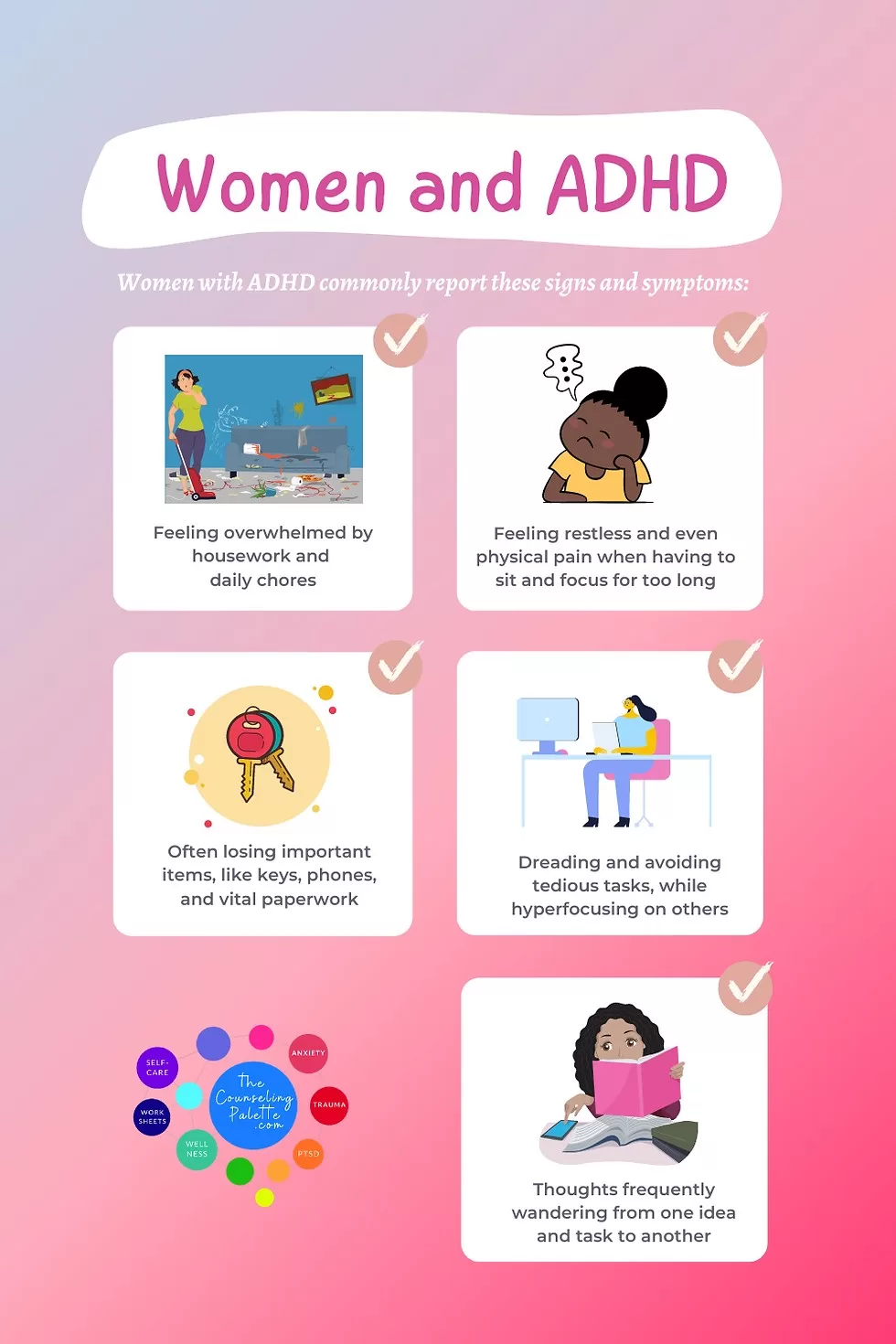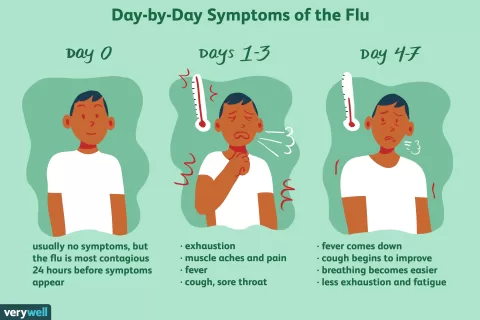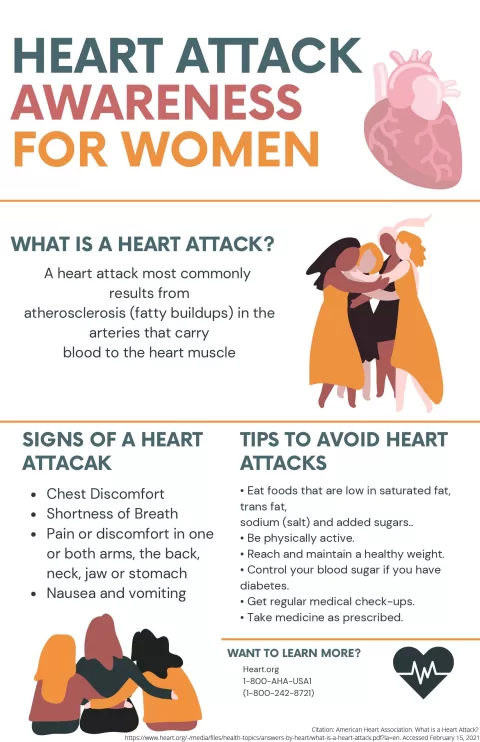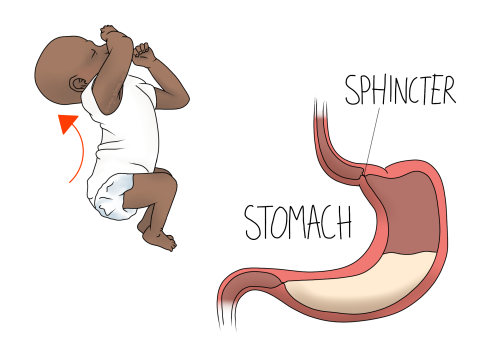Identifying the signs of adult ADHD can often feel like piecing together a complex puzzle. Many individuals experience symptoms of adult ADHD without even realizing it, mistaking their struggles for everyday stress or anxiety. In reality, these overlooked ADHD signs can manifest as chronic disorganization, impulsivity in decision-making, or emotional dysregulation. With around 10 million American adults likely affected by this condition, understanding the symptoms of adult ADHD becomes a critical step toward effective management and treatment. Recognizing these signs can lead to a proper diagnosis, offering a path to better coping strategies and improved quality of life.
When exploring factors related to attention-deficit/hyperactivity disorder in adults, it’s essential to consider the subtle cues that might indicate an underlying issue. Often termed as distractibility or emotional instability, ADHD in adults may not align with the stereotypical hyperactive behaviors associated with children. Instead, adults may experience a range of symptoms, such as procrastination or excessive restlessness, that are frequently dismissed as personality traits. The complexity of diagnosing adult ADHD lies in its overlapping symptoms with other conditions like anxiety and depression, making recognition key. Understanding these nuances can help individuals seek the support they need to thrive.
Understanding Adult ADHD Signs
Recognizing the signs of adult ADHD is crucial for effective management and treatment. While many adults may not associate their struggles with adult ADHD, common symptoms can manifest subtly throughout daily life. When one experiences ongoing challenges with organization, attention, and emotional regulation, these might be hidden indicators of ADHD. It’s important to note that these signs may often be misconstrued as personality traits or typical stress responses, exacerbating the difficulty in diagnosing adult ADHD.
Furthermore, each person’s experience with adult ADHD can vary significantly. Symptoms can easily overlap with other mental health issues such as anxiety or depression. As such, some individuals may be mistakenly treated for these conditions instead of receiving appropriate ADHD evaluations. Understanding adult ADHD signs can help to ensure that individuals seek targeted treatment and ultimately enhance their quality of life.
The Overlooked Signs of ADHD in Adults
Many adults live with unnoticed signs of ADHD that can severely impact their daily functioning. Procrastination is often underestimated; while it may seem like mere laziness, it can actually stem from ADHD-related difficulty with time management and delayed gratification. Similarly, forgetfulness, especially regarding essential tasks like eating, can be an overlooked symptom of adult ADHD, leading to poor nutritional habits and associated health issues.
Another sign worth mentioning is emotional dysregulation. Adults with ADHD might experience impulsive emotional responses that can disrupt relationships and daily activities, often being mistaken for temperamental behavior. Recognizing these overlooked ADHD signs is essential for initiating a conversation with healthcare providers about the potential need for diagnosis and treatment.
Common Symptoms of Adult ADHD
Common symptoms of adult ADHD can be quite varied, with individuals often exhibiting different combinations of the classic signs. Difficulty concentrating, procrastination, and impulsive decision-making are frequent issues that many adults with ADHD face. These symptoms can uniquely affect personal and professional relationships, as adults may struggle to meet responsibilities due to challenges in maintaining focus and organization.
Moreover, behaviors like hyperfocusing can be both a blessing and a curse for adults with ADHD. While this intense concentration can lead to productivity in certain areas, it often comes at the expense of neglecting other important tasks. By understanding these symptoms in the context of adult ADHD, individuals can better assess their personal experiences and seek appropriate coping strategies.
Diagnosing Adult ADHD: When to Seek Help
If you suspect that you might be experiencing symptoms of adult ADHD, it is essential to consult a healthcare professional. Diagnosis typically involves a comprehensive assessment that may include interviews, questionnaires, and self-reports detailing your behavior over time and across different settings. Understanding the criteria for diagnosing adult ADHD can help guide you toward getting the help you need.
It’s critical to recognize when your struggles affect various aspects of life, such as work, relationships, and overall well-being. If you’ve noticed multiple symptoms persisting for six months or longer, it’s time to seek professional evaluation. A correct diagnosis can open the door to a better understanding of your symptoms and lead to tailored treatment options.
The Impact of Adult ADHD on Daily Life
Adult ADHD can significantly impact various areas of daily life, leading to challenges in maintaining personal and professional relationships. Individuals might struggle to fulfill commitments, manage time effectively, and regulate emotions, which can all contribute to a cycle of frustration and stress. Understanding the comprehensive effects of ADHD in adults is imperative for creating supportive environments both at home and work.
The emotional toll often associated with adult ADHD should not be overlooked. Feelings of inadequacy, shame, and frustration can be commonplace among adults dealing with undiagnosed or untreated ADHD. By addressing these impacts openly, individuals can cultivate healthier coping mechanisms, ultimately leading to improved mental health outcomes and a better understanding of their ADHD symptoms.
Effective Treatments for Adult ADHD
Treatment options for adult ADHD are diverse and can be tailored to fit individual needs. Common approaches include medication, therapy, or a combination of both. Medications typically aim to enhance cognitive function and manage symptoms, while therapy, such as cognitive-behavioral therapy (CBT), can help individuals develop practical strategies for organization and time management.
Additionally, lifestyle changes can play a pivotal role in managing adult ADHD. Incorporating regular exercise, maintaining a structured routine, and utilizing organizational tools can enhance focus and productivity. Staying informed about effective treatments for adult ADHD can empower individuals to take control of their symptoms and lead a more fulfilling life.
Recognizing Emotional Dysregulation in Adults
Emotional dysregulation is a significant component of adult ADHD, often causing unexpected emotional responses to minor stressors. Individuals may find themselves feeling overwhelmed, irritated, or sad without clear reasons. This emotional volatility can interfere with daily interactions and lead to misinterpretations in both personal and professional relationships, which is why recognition is crucial.
Furthermore, managing emotional dysregulation involves learning techniques for emotional awareness and response. Seeking professional help can be instrumental for adults who experience these symptoms. Developing coping mechanisms and strategies can significantly improve emotional management, further empowering individuals to navigate their daily challenges more effectively.
Impulsive Behaviors Associated with ADHD
Impulsive behavior is a hallmark of adult ADHD and can manifest in various ways, including impulsive spending, speaking without thinking, or making hasty decisions. These actions often lead to negative consequences that can affect an individual’s personal and financial well-being. Recognizing that such impulsivity is tied to ADHD can help adults understand their behavior better and seek out relevant strategies for controlling these impulses.
To mitigate impulsive behaviors, awareness and mindfulness practices can be beneficial. Adults with ADHD may find it helpful to pause before reacting or to establish specific decision-making processes. Seeking guidance from professionals can further support individuals in managing these impulsive behaviors, encouraging healthier life choices and improving overall functioning.
Navigating Restlessness and Hyperactivity in Adults
Restlessness and feelings of hyperactivity can often be overlooked components of adult ADHD. While seen as typical characteristics of childhood ADHD, these symptoms persist into adulthood and can lead to difficulty relaxing or remaining still for extended periods. Adult restlessness can manifest as an inability to concentrate, resulting in increased frustration when trying to focus on tasks.
Adults experiencing restlessness might also display characteristics such as consistently seeking new activities or constantly feeling the need for movement. Recognizing these symptoms as signs of adult ADHD is important, as it allows individuals to explore coping mechanisms that accommodate their active minds while still promoting productivity.
The Role of Self-Education in Managing Adult ADHD
Self-education about adult ADHD can dramatically improve the management of its symptoms. Understanding how ADHD works, including its signs, causes, and effects, helps individuals advocate for themselves and make informed decisions regarding treatment. Knowledge about ADHD encourages an awareness of personal triggers, enabling proactive adjustments that can enhance routine and reduce stress.
Moreover, connecting with ADHD support groups or online resources can provide invaluable support. Engaging with others who share similar experiences fosters a sense of community and understanding, reinforcing that adults living with ADHD are not alone. Comprehensive self-education plays a pivotal role in promoting effective management strategies and improving personal well-being through greater understanding.
Frequently Asked Questions
What are common symptoms of adult ADHD that I might be overlooking?
Common symptoms of adult ADHD include chronic disorganization, extreme procrastination, impulsive spending, emotional outbursts, and time blindness. Adults may also experience hyperfocusing, difficulty sleeping, and forgetfulness, all of which can significantly affect daily life.
How can I determine if I have ADHD in adults based on my signs and symptoms?
If you consistently exhibit five or more symptoms of adult ADHD, such as inattention, impulsivity, and emotional dysregulation for more than six months across different areas of your life, it may be time to consider getting evaluated for adult ADHD.
What are the overlooked signs of adult ADHD that may be mistaken for other issues?
Overlooked signs of adult ADHD often mimic anxiety or depression, such as feelings of overwhelm, sleep disturbances, and difficulty making decisions. This can lead to misdiagnoses and ineffective treatment if ADHD is not considered.
What should I do if I think I have symptoms of adult ADHD?
If you suspect you have symptoms of adult ADHD, start by discussing your concerns with your primary care doctor. They can provide a referral for a comprehensive evaluation, which is essential for proper diagnosis and treatment.
What treatment options are available for adults with ADHD?
Treatment for adult ADHD may involve medication, psychotherapy to improve management skills, and strategies to address comorbid conditions like anxiety or depression. Tailored approaches can help manage symptoms and enhance overall functioning.
How does hyperfocusing relate to the symptoms of adult ADHD?
Hyperfocusing is a common symptom of adult ADHD where an individual becomes so engrossed in a particular task that they lose track of time and neglect other responsibilities. This selective attention can significantly impact daily life.
Can issues like emotional outbursts indicate signs of ADHD in adults?
Yes, emotional outbursts can be a symptom of adult ADHD resulting from emotional dysregulation. Adults with ADHD may experience unexpected emotional reactions that are disproportionate to the situation.
Are sleep problems common among adults with ADHD signs?
Yes, sleep issues are prevalent among adults with ADHD. Disruptions in brain pathways related to attention can lead to insomnia, difficulties falling asleep, or irregular sleeping patterns.
How does impulsive spending relate to adult ADHD symptoms?
Impulsive spending is a symptom of adult ADHD where individuals may make rash financial decisions, often as a way to seek immediate gratification or to alleviate boredom, showcasing difficulties with self-control.
What steps should I take if my symptoms of adult ADHD are affecting my quality of life?
If your symptoms of adult ADHD are impacting your quality of life, seek professional advice. An evaluation from a healthcare provider can lead to an accurate diagnosis and a personalized treatment plan to help manage symptoms effectively.
| Signs of Adult ADHD | Description | Implications/Effects | |
|---|---|---|---|
| Procrastinating to the Extreme | Leads to avoidance of routine tasks due to lack of dopamine rewards. | ||
| Hyperfocusing on the Same Task for Hours | Intense focus on certain activities results in neglect of others. | ||
| Spending Impulsively | Impulsive financial decisions; can lead to debt and stress. | ||
| Losing All Sense of Time | Difficulty estimating time leads to chronic lateness. | ||
| Experiencing Emotional Outbursts | Strong emotional reactions can affect relationships and social interactions. | ||
| Forgetting to Eat | Can lead to unhealthy eating patterns and nutrition issues. | ||
| Having Trouble Sleeping | Sleep issues can exacerbate ADHD symptoms and overall health. | ||
| Taking Forever to Make Decisions | Slow processing speeds hinder decision-making in daily life. | ||
| Feeling Perpetually Restless | Restlessness can mask ADHD symptoms and affect productivity. | ||
| Rambling and Monopolizing Conversations | Interruptions in conversations can affect social dynamics. | ||
Summary
Adult ADHD signs are often subtle and easily overlooked. Individuals may struggle with procrastination, hyperfocusing on certain tasks, and impulsive spending, all of which can significantly impact their daily lives. Recognizing these signs is crucial as they can lead to emotional distress and challenges in managing personal and professional responsibilities. If these symptoms sound familiar, it’s important to seek an evaluation, as a proper diagnosis can lead to effective treatment options that help manage adult ADHD.
The content provided on this blog (e.g., symptom descriptions, health tips, or general advice) is for informational purposes only and is not a substitute for professional medical advice, diagnosis, or treatment. Always seek the guidance of your physician or other qualified healthcare provider with any questions you may have regarding a medical condition. Never disregard professional medical advice or delay seeking it because of something you have read on this website. If you believe you may have a medical emergency, call your doctor or emergency services immediately. Reliance on any information provided by this blog is solely at your own risk.








